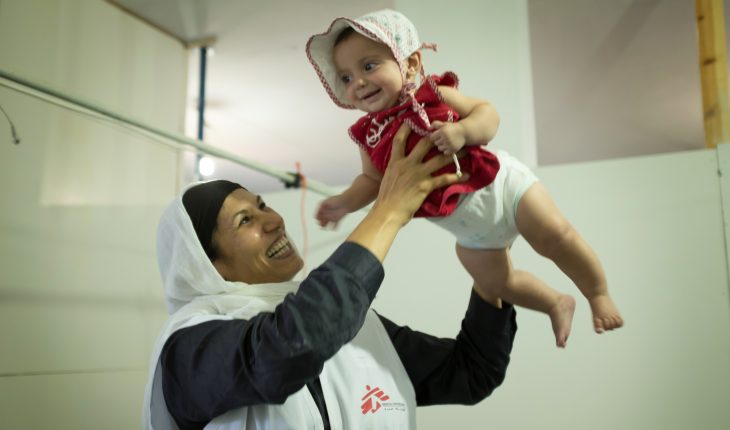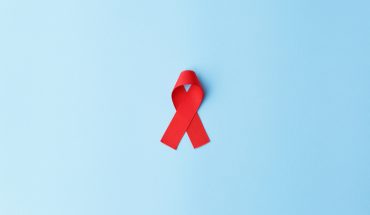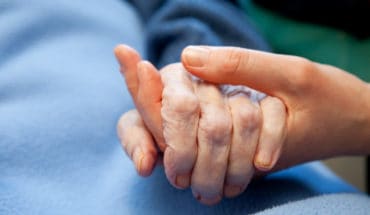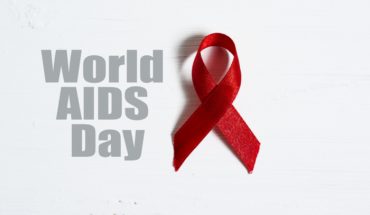In celebration of International Day of The Midwife we hear from Cristina Ceroli, a midwife for MSF, who talks about her experiences working in the field.
My name is Cristina and I am a midwife originally from Italy. After working for almost five years in the NHS, I joined Doctors without Borders (MSF) and I am now starting my fourth mission with them, this time in Yemen.
Many people ask me why I have chosen to volunteer with MSF, what made me take this decision and why I left my great job in London. For sure, I wouldn’t be able to work for MSF if it was not for the experience and knowledge acquired in the NHS. Before making the switch, I must admit, my life was great. I got on well with all of my colleagues, my work was interesting as I was part of the female genital mutilation clinic and I had the opportunity to take time off and go for nice holidays. However, at one point, these things were not enough for me anymore. I felt that it was the time to make a change and I found the courage to send my application to MSF.
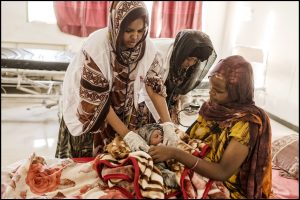
A young mother with her baby that was born earlier that day. MSF staff does medical check up for the baby as well as for the exhausted mother.
Working for MSF has been always my dream, or at least, since I was in high school in Italy. I remember the exact day I heard about MSF for the first time. In school they were talking about the organization and the incredible work they do. I was so impressed that I promised myself that one day, I would join the team and work across the world to support people as best as I could.
It took some time to realise this dream. I finished University in Italy, moved to the UK, worked as midwife in various hospital, learned English (always keeping my strong Italian accent!) and undertook a course in Tropical nursing. Then I applied and here I am! The dream became true…
On the 20th of May 2016, I travelled to South Sudan where I would spend six months working in an IDP camp called Bentiu. My first mission was great. I could not have desired for anything better. It was tough for sure. Really muddy and hot but I learned a lot and grew, both in my professional capacity and as a person. When you work as a midwife for MSF, you are both a manager and a midwife. You are responsible for taking care of the maternity team, for conducting trainings, for organizing the ward (pharmacy rosters, ensuring policies and guidelines are followed) and you are to be on call and ready to support if there are difficult obstetric cases. In many projects, they are no gynecologists therefore we are the ones who have the experience to deal with complications (APH, PPH, prolonged labour, management of miscarriages and abortions). Sometimes, as in South Sudan, we had to learn how to take care of sick and premature newborns, especially during the rainy season, when malaria affected pregnant women and caused lots of preterm deliveries.
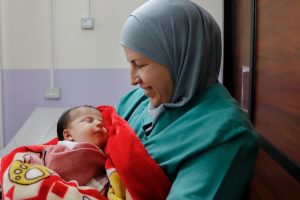
Iman Derbass is a midwife at MSF’ Women Health Center (WHC) in Shatila camp (Lebanon). Her daily work consists in delivering babies (on average, 10 babies per day) and offering ante and post-natal care to mothers there. She says: “This center and the services we provide are very important because of their gratuity. There are people here who don’t even have enough money to eat or drink, or to just make ends meet. The more people face difficulties, the more we try to help.” Iman works with 3 other midwives, 2 ante-natal and post-natal specialists, 2 gynecologists, 1 pediatrician, 1 pharmacist and 2 registration officers at the WHC. MSF opened the facility in 2013.
After finishing my first mission, I realized that I wanted to continue in this work. I couldn’t get enough. I ventured on my second mission in Iraq, in a hospital not far from Mosul. When I was there, we were doing about 200 deliveries per month. We did not have an operating theatre or a neonatal unit therefore complicated cases were referred by ambulance to the closest hospital, that was about 2 hours away. Working in a conflict zone, can be tough, especially when fights happen close to your location and you see with your eyes what the effects of war are on the people around you. It can be scarring. I still remember the first time I heard shooting just outside the hospital in South Sudan, or the time we needed to care for many people who were injured by a suicide bomber, who exploded at the frontline close to our hospital. However, I felt confident in the hands of MSF who take the security of both their national and international staff very seriously. You are briefed extensively before they send you on project and you can always express when you are uncomfortable in the field.
My last mission was in Bangladesh, a non-conflict zone where MSF have emergency projects responding to the Rohingya crisis. The Rohingya’s are one of the most persecuted minorities in the world, and because of violence experienced in Myanmar, they needed to escape and settle in refugee camps, across the border in Bangladesh. This project was different to my other experiences. I was originally there to open the maternity ward but it ended up taking longer than anticipated. The people in the camp are not vaccinated, therefore there were several outbreaks in the camp, the biggest during my mission being diphtheria. Due to this emergency, the opening of the maternity was delayed and I became the diphtheria midwife. I was responsible for the admission area and I even delivered a baby in the diphtheria isolation ward! Finally, at the end of my short mission, the team and I could open the maternity ward. It was one of the most rewarding days of my life.
Working for MSF can also have its frustrations at times. For example, you have to wait to be matched, and then wait for your visa, or when you arrive, noticing that the resources are not as you expected and you wonder how you will be able to work properly. However, the good things always outweigh the frustration. Many people think that those who work for humanitarian organizations do it exclusively to give to others but they often don’t realise how much the experiences give to us. Without doubt, we choose to do this kind of work to help others. There is nothing more rewarding than being able to save someone’s life, or seeing the little premature baby of 1kg survive and make it home, or seeing a woman who was barely surviving make it home and take care of her family. However, for me, I also do it for all the opportunities MSF offers. MSF organizes lots of courses that we can join, which help both work in the field and also back home. We get to meet and work with people from all different cultures and learn from their experiences. We can even visit places that not many people get to see; when I was in Iraq I saw the biggest Yazidi temple!
Personally, I hope to continue my career in MSF. I still have a lot to give and a lot to learn and who knows, maybe one day I will meet one of you who has taken the plunge into the world of MSF.
To find out more about being an MSF midwife, please visit https://www.msf.org.uk/job-profile/midwife
- Being a midwife with MSF - 4th May 2018
